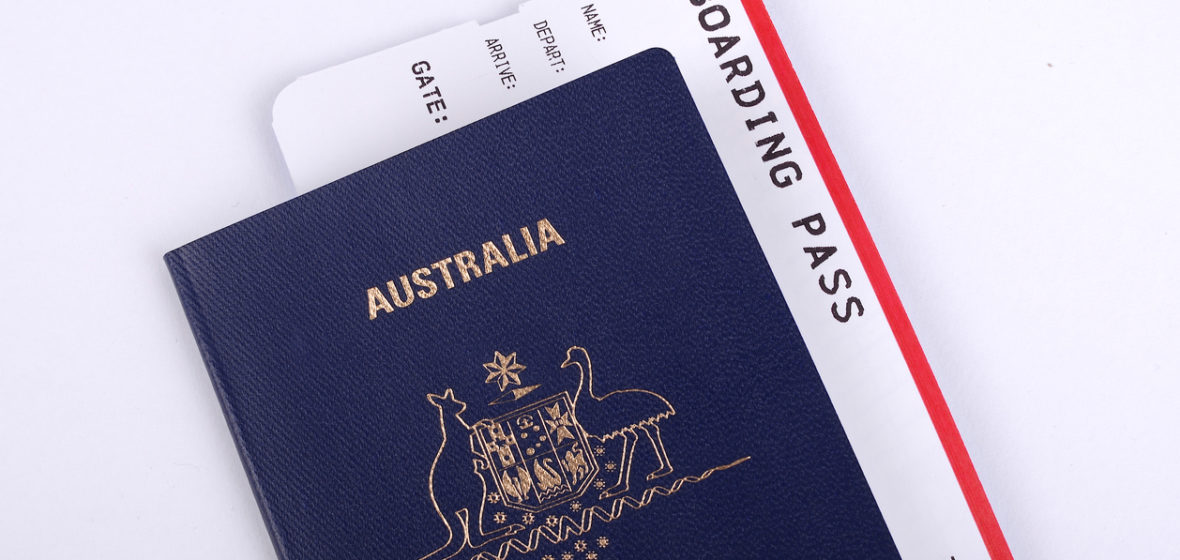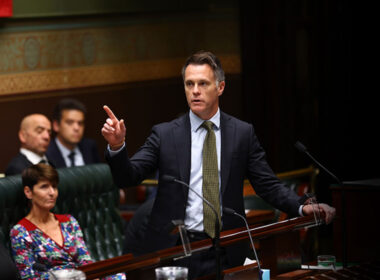As the song goes, no matter how far we roam, we still call Australia home. But more than a year into unprecedented pandemic border closures, it isn’t so simple anymore.
Simmering discontent from Australian citizens stranded far from home culminated in an outcry this month, as the Federal Government announced anyone who attempted to enter Australia from COVID-19-ravaged India would face criminal sanction under the Biosecurity Act.
Fines of up to $66,000 and the prospect of five years’ jail time threatened those who dared to defy the order and attempt to return home – whether from India directly, or by transiting through another country.
These penalties are the standard punishment for breaching the Biosecurity Act. However, after a year of restrictions on civil liberties and indefinite international border closures, this latest rule was met with widespread public furore.
Footage of carpark cremations and pleas for oxygen in a country with more than 400,000 daily cases, and over 240,000 deaths, are heartbreaking when coupled with the knowledge that an Australian passport is no longer a permanent ticket to ride to public health safety.
But Australia’s Public Health Officers — who have steered the nation to near-eradication of the virus — told the government “leakage” from hotel quarantine posed “significant risk” through potential transmission of “variants of concern” to the broader community.
This week, Melbourne man Gary Newman, who has been stuck in Bangalore since March 2020, launched an urgent Federal Court challenge to the ban. His barrister Christopher Ward SC’s opening address to the court said the threat of criminal penalty was “quite different” to previous restrictions on inbound travel to Australia, however onerous. Counsel for the Government, Craig Lenehan SC, in turn described the Biosecurity Act as a “legislative bulldozer” for the breadth of its emergency powers.
Yesterday evening, Federal Court Justice Michael Thawley upheld the Government decision as a proportionate response to the coronavirus threat from India, dismissing the first of Newman’s arguments: that the ban was more restrictive than required, and the Biosecurity Act could not override a common law right to return home to Australia.
As we have seen in the Clive Palmer state border case, and the Melbourne curfew case, judges seem to be inclined to go with what the Government’s public health experts say.
– PROFESSOR LUKE BECK, constitutional law expert at Monash University
The Federal Court has not yet ruled on Newman’s second prong of attack: that the ban infringes on a constitutional right of a citizen or permanent resident to return home. A decision is expected this week.
However, the argument could be moot if the ban is not extended past its expected expiration on 15 May.
What of the constitutional argument?
Federal Health Minister Greg Hunt has publicly defended the ban on flights from India, saying the risk assessment that informed the decision was based on the high numbers of overseas travellers in hotel quarantine in Australia who had acquired COVID-19 in India. Importantly, the decision was based on written advice from Chief Health Officer Paul Kelly, who told Hunt it was a proportionate step to take.
“I note that such a determination, if made, would be the first time that such a determination has been used to prevent Australian citizens and permanent residents entering Australia,” Kelly wrote to Hunt on April 30. “I consider that these serious implications can be mitigated through having the restriction only temporarily in place, i.e. a pause, and by ensuring there are categories of exemptions.”
Professor Luke Beck from Monash University, an expert in constitutional law, believes Newman’s constitutional argument could prove unsuccessful, given the ban was based on this written advice from the Chief Health Officer.
Beck told LSJ: “Given the public and legal controversy around the ban, it’s probably not surprising. But in terms of the challenge itself, I wouldn’t be holding my breath for success.”
“There are a few problems with that [constitutional argument],” Beck said.
“The chief problem is that the High Court has never before recognised the existence of any such right. And then even if they were to climb that enormous mountain and say to the court that there was such a right in the constitution, they would then have to demonstrate to the court that that right is absolute and can never be subject to any limitations at all.”
The unsuccessful prong of Newman’s argument pressed the limitations of the Biosecurity Act, in giving the Minister rights to impose orders.
“If he can produce public health expert evidence that proves to a court that the Minister has gone too far, and gone beyond what is reasonably necessary to protect public health, then he would probably win because the Minister will have done something the Biosecurity Act doesn’t give him power to do,” Beck told LSJ last week on the eve of the hearing.
“The problem with that argument is that the Minister made this rule based on the written recommendation of the Commonwealth Chief Health Officer … And as we have seen in the Clive Palmer state border case, and the Melbourne curfew case, judges seem to be inclined to go with what the Government’s public health experts say.
“That’s not to say it’s impossible to produce other expert evidence to persuade a court on the basis of that evidence, but it’s a very difficult thing to do.”
Beck describes it as “odd” and “curious” that the penalty was initially highlighted by the government in its media release when “the likelihood of anybody copping the maximum penalty is effectively zero”.
“Especially because in order to breach the rule you would have to get on a flight to India and somehow end up in Australia. There are no flights so practically and logistically it’s impossible to break this rule, and if it’s impossible to break the rule, you can’t commit the crime and incur the penalty.”
Time to consider a human rights Act?
Human rights lawyers say the ban on Australians returning home from India is yet another a draconian consequence of Australia being the only developed Western democracy without a Human Rights Act or Bill of Rights.
The Australian Lawyers for Human Rights coalition said the decision “exposes that Australians have no constitutional or legislative guarantee of what it means to be Australian”.
The expected lifting of the temporary ban on 15 May does not spell an easy journey back to our cities and shores.
In order to return home, Australian citizens in India will have to show proof of two negative tests for COVID-19 before being allowed to board a repatriation flight. They will then need to do two weeks’ quarantine at Howard Springs in the Northern Territory, the nation’s only non-hotel quarantine facility. Priority on the handful of flights will be given to those deemed “most urgent” and vulnerable.
For many, Australia will remain closed.




